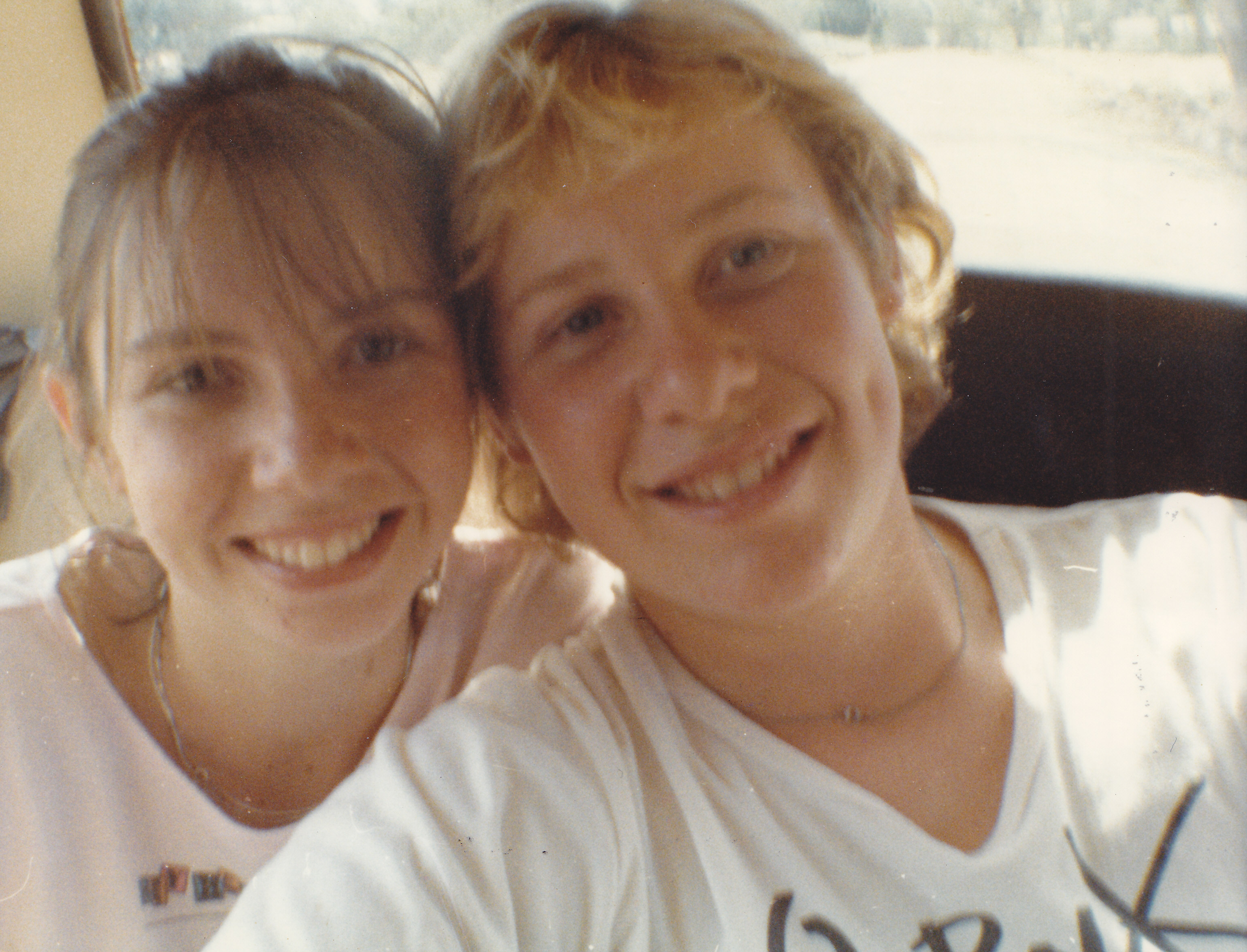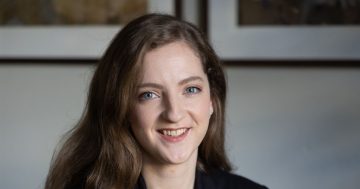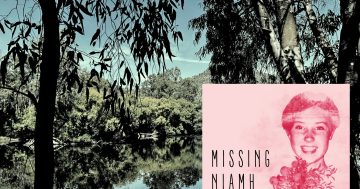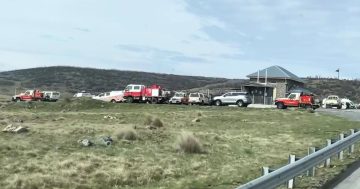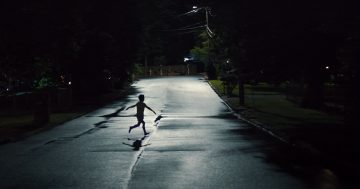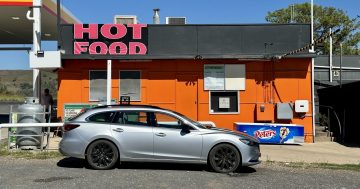
The theme of National Missing Persons Week in 2017 is youth.
When Ursula Dianne Barwick went missing 30 years ago she was just 17.
Three out of five missing person reports recorded by police relate to a young person under the age of 18.
Those in the age bracket of 13 to 17 years account for 50% of all missing person reports – almost 20,000 young people each year.
And while our first thought is for the missing person themselves, this year there is a special focus on the family and friends left behind.
This community understands that impact better than most through the work of Tathra’s Melissa Pouliot and her books, writing inspired by and as Melissa would say ‘guided’ by her missing cousin Ursula.
The unresolved grief, thoughts that torment, feelings of helplessness – Melissa has given a voice to the families and friends through her own powerful story.
That continues now.
Despite what you might think, a very small percentage of missing person cases in Australia are stranger abductions.
Young people go missing for a number of reasons including:
- Family and social conflict
- Being the victim of crime
- Communication issues
- Mental health problems
- Drug and alcohol abuse as well as escaping from other abuse and neglect.
Going missing can be seen by young people as a way of resolving tension or conflict at home or within friendship groups.
The sad thing is when our young people go missing it becomes almost impossible to connect them to the support that might really help them and keep them part of our community. On top of that, they are exposed to a new range of pressures and challenges that can twist their lives further.
Going missing is not a solution to mental health problems or tough situations. There are people here to help with whatever you are wrestling with – care and warmth to help you through.
Your local GP is a good place to start or Lifeline on 13 11 14.
With Missing Persons Week to start on Sunday, a new chapter has emerged in Melissa and Ursula’s story.
Melissa gave this speech this afternoon in Canberra at the launch of her latest book ‘Found’.
You are not forgotten Ursula.
Ian
Saying goodbye to Ursula, by Melissa Pouliot
Words have real power. Words can wound, words can heal. And in my case, words can find people.
In 2013 I put a whole bunch of words together in a crime fiction novel I named Write About Me. After I finished all my made up words I wrote some real words about my cousin, Ursula Dianne Barwick, who went missing in 1987 when she was 17 and I was 15.
After reading all my words, one of my best friends wrote to me and said:
“Just finished your book! Fantastic job you should be so proud. I feel like giving you a big hug after reading the author’s note. Love and hugs to you.”
And my best friend from high school wrote: “Give up your day job now. I have 20 pages left and I don’t want the book to end.”
Those words, among many others, spurred me on to keep writing and to keep searching for the truth about Ursula.
Four years and four more books later, around half a million words, and I am staggered by how much words have changed the course of my life.
Finding Ursula was a team effort, driven by two dedicated detectives from Kings Cross – Detective Sergeant Kurt Hayward and Detective Senior Constable Amy Scott.
I had a small but strong support network every step of the way, encouraging me to be brave in my pursuit of the truth.
Initially thinking it was too late to solve the mystery of her disappearance, my quest started as a way to honour her memory. To show her, no matter where she was, that I had not forgotten about her, I had not stopped missing her, I had not stopped searching for her.
An amazing groundswell of support followed, and it soon became clear that Ursula wanted to be found.
Last week I tried to say goodbye to Ursula, who, nearly thirty years after she went missing, is FOUND. Her lifetime was 17 years, two months and thirteen days.
I stood with my family, some of Ursula’s school friends, the people who worked so hard over the past three years to find her and the people who have supported me along the way.
Ursula’s Mum, my Aunty Cheree, wasn’t with us, although I like to think her and Ursula were reunited when Cheree died in 2004.
To be completely honest, I am at sea as to how to say my final goodbye, as the long journey of her death is not over yet.

Melissa Pouloit’s new novel ‘Found’ was launched in Canberra by the Australian Federal Police on July 27 2017.
We are still trying to join the dots that connect Ursula and the fictional character of Jessica Pearce, who she created for her new friends in Sydney that were with her when she died on the Hume Highway at Tarcutta on October 27, 1987.
The circumstances surrounding her death are now in the hands of the NSW Coroner and I look forward to having clearer answers to the questions we cannot answer at this time. Maybe then I will be ready to say my goodbye.
I am unable to gather the words to describe my grief at discovering that Ursula died in a car accident, only a short time after she went missing in October 1987.
Those words float around out of reach, moving backwards and forwards through all the years we have been waiting for her to come home.
Words refused to settle into neat sentences during that first horrible, painful, devastating year.
Then they raced around in circles for the 29 years that followed, all those years when we held onto hope she would come home to us.
But she couldn’t. Because she was long gone.
I haven’t fallen into a crumpled heap onto the floor to sob my broken heart out. My stomach doesn’t twist in pain.
I still wake up each day with fresh hope for a new day, and my life is moving forward at its usual rapid pace.
Instead of the raw volcano of emotion that I expected to go with the news that Ursula is dead, I carry around a dull ache across my shoulders, behind my eyes, in my right leg and in my lower back. My grief moves and shifts around, quietly, reminding me every now and then that she is really gone.
There are other signs of my grief. I forget things. I fade away in the middle of an important conversation. I lose concentration while riding down a steep, rocky hill and nearly end up in a pile of trauma at the bottom.
Every person who knew Ursula, both those who grew up with her, those who were close to her, and those who only said a casual hello to her in the school yard or up the street, all remember the same things. Ursula was always laughing, always smiling, always having fun.
Her legacy, the thing that will inspire others for many years to come, is that it is never too late to find your missing person.
“Ursh, I love you and always will. I will never stop missing you, and I will always remember your bright blue eyes, soft blonde hair and lovely loud laugh.
Let the good times last forever. Dance all night and shake the paint off the walls.
Forever yours,
Lissy x”
Yes, words certainly do have power. They can wound, yet they can heal. And as I have shown, words can find people.
Words by Melissa Pouliot
A memorial for Ursula Dianne Barwick was held at Emu Plains Cemetery on Wednesday, July 19, 2017.
Melissa will launch National Missing Persons Week in the Bega Valley on July 31, at the Bega Valley Commemorative Civic Centre at 10:30am, coinciding with the national launch in Brisbane.
Her local launch for ‘Found’ will take place at Dulcie Cottage in Merimbula on Thursday, August 3 at 6pm.
Melissa is working on her sixth novel and will continue to dedicate her energy to raise awareness for missing people and child safety through her roles as a missing persons advocate and Day for Daniel Ambassador.


